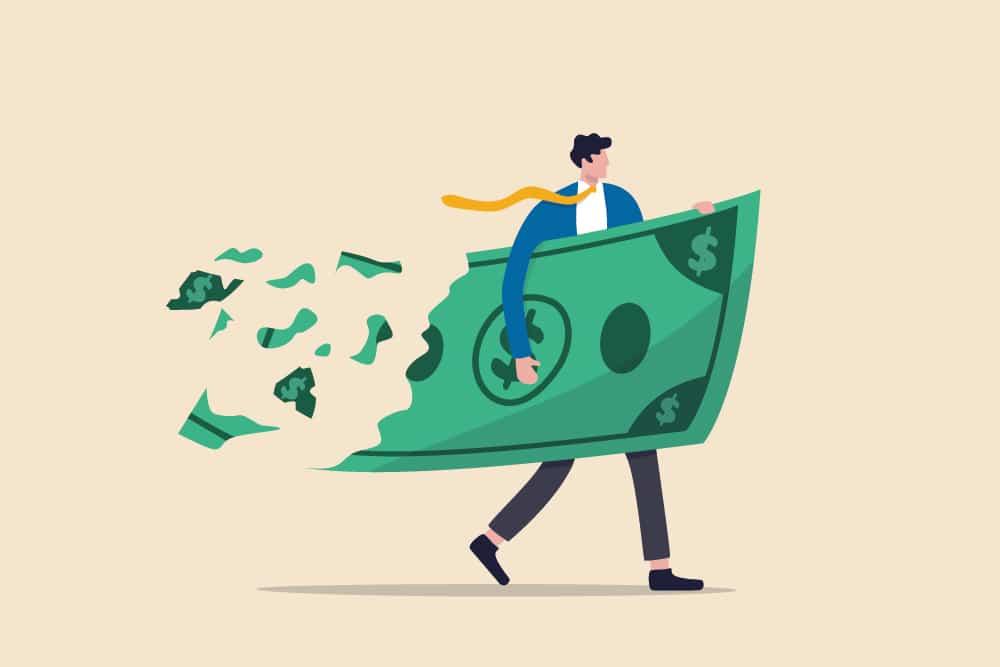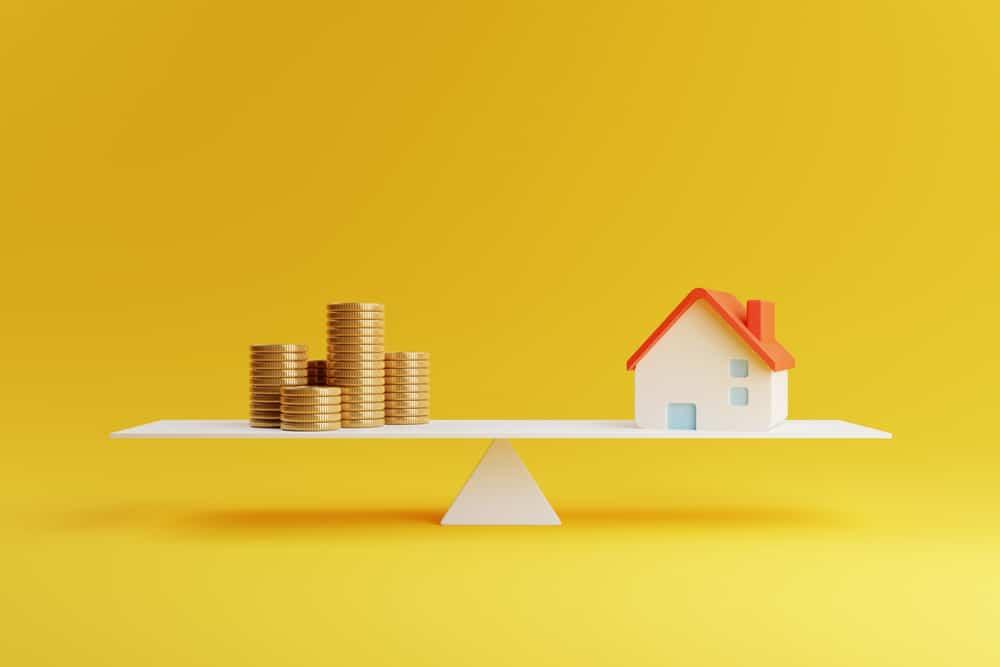
The Equity Tactic For Excelling Your Property Portfolio
While long term we know that cash flow is dependent on a good rental income, capital growth is the quickest way our property can pay us back. This comes down to having some smart tactics to get the most out of every dollar of value in our investment properties – something we like to call equity lock.
This is because the one thing we need as property investors, particularly in the acquisition phase of our journey, is access to our money.
The more cash we can lay our hands on, the more properties we can buy and start to get an income from.
Most property investors don’t start out their journey with a big bucket of cash that never empties. The majority of property investors need to borrow money from banks and lenders to get enough cash to buy that first investment.
And the quickest way to buy the next property is to have our first investment pay us back what we borrowed to buy it. In short, we want our properties to pay us back the deposit amount so we can use that money as the next deposit.
WHAT IS EQUITY LOCK – AND WHY IS IT SO IMPORTANT?
Before equity lock, comes equity. Equity happens when your property is worth more than you paid for it. Maybe the average area price has gone up thanks to an improvement in local infrastructure, or there’s a lack of stock so people suddenly need to pay more to live in your location.
Whatever the reason, your property is now worth more than you spent buying it.
Capital growth, as we’ve said before, is a vanity exercise. It’s great to swan around feeling smug that your $450,000 apartment would now sell for $500,000. But unless you do something about it, how does it really serve you?
Equity lock is the one financial tactic that a property investor needs to know how to use to grow their portfolio faster.
Once your property has equity, the smart thing to do (making sure you can still service the loan) is to revalue the property and draw out the increased amount. Property investors then use that cash as a deposit on the next one or two properties, which also yield rent income and capital growth.
IS THERE FALSE EQUITY?
Markets are constantly changing. Over the 20 years that you own a property you can expect the value to go up, go down and plateau. That’s how real estate works.
So, imagine if impacts like COVID-19 or a lack of stock or low interest-rates, push up the value of your property, above what even you think it’s really worth? Even if you eventually lose some of that capital growth and have to wait a few years to get it back, as long as you can service your loan, you still need to act fast and lock your equity in.
Property investors don’t live on capital growth. The income from rent and regular increases in that rent is what allows people to work a three day week. The more properties you own, the greater the passive income.
Locking in equity means you can buy a second, third or fourth property that much faster, which equates to more passive income.
GETTING STARTED
Let the experts at TRC-Gorod teach you about equity lock and how to make it work for you at one of our free property investing seminars.
Sign up for one of our information and education events, where you’ll be equipped with the tools, resources and support to thrive, and not fall behind on your path to financial freedom – whatever that may look like for you.
Book your spot now and find out what you need to know about the current market landscape and how you can make it work for the ultimate wealth creation opportunities.
Recent Articles
3 Ways a Property Investor Will LOSE Money!
There are many ways you can win big by investing in real estate. Equally, if you lose sight of the basics, you’ll end up losing something much worse – money! No one sets out on their property journey to go backwards financially, so take note of these three common mistakes that investors often make, because if you don’t, it may cost you in the long run. Here are 3 ways an investor can lose money…
An Investor’s Guide to Multi-Income Properties
When it comes to building a booming property portfolio, diversity is key! There are four primary multi-income types that Australian investors can buy at the moment.
Property Cash Flow Basics For Creating Passive Income
Buying real estate is similar to running a business – good performance is derived from your ability to generate cash flow. For a property investor, this means eventually living off the passive income that your real estate generates. Therefore, it is especially important that you map out your ability to build a portfolio that will deliberately achieve this level of success from the get-go.
How Property Investors Can Reduce Tax Down To Zero!
Those who own real estate are subject to many, different kinds of tax. Some tax is unavoidable. Other kinds of tax are legally, 100% avoidable – or at least able to be reduced substantially. With the Victorian government recently announcing a rise in the land tax threshold it’s even more important that property investors know where they can and should minimise the tax they pay.
A Property Investor’s Guide To Depreciation
Every smart property investor knows that to create and maintain a portfolio, we need to have good cash flow. One of the ways we can support this is by using depreciation and tax. But, just like equity, depreciation only works for us if we know how to access and then leverage it.
A Property Investors Guide To Guaranteed Rental Increases
Rent is your weekly or monthly incomes from your property. And it’s an income you don’t work for. It’s the absolute key to good cash flow and passive income, so it’s essential you are able to keep raising your rents at regular intervals. But, what makes it possible for property investors to do this?
The Only Time You Should Sell An Investment Property
The golden rule of property investing is to buy well and NEVER SELL. However, there are always exceptions to the rule… Firstly, let’s look at why you would keep an investment property? If you buy a great piece of real estate, in the right location, it will always create a passive income for you, so there will be no reason to sell it.
House vs Apartment – Which Is Better for Capital Growth?
Many property investors favour one type of property – either apartments or houses. While there are pros and cons to both, which we will discuss here, one of the often forgotten advantages of houses is the investment you’re making not only in the bricks, but also in the land. Land value in itself increases over time, and investment in a piece of land also provides opportunity to renovate, subdivide and develop, all of which lead to greater capital growth.
Use Equity To Create Cashflow in 4 Simple Steps!
Equity is an interesting topic when it comes to real estate. Smart property investors know that equity can play a key part in creating passive income that accumulates over time, allowing us to eventually work less and ultimately do more of what we love. But in order to be able to use equity to create passive income, there are some important steps property investors need to take right at the beginning of their journey.












